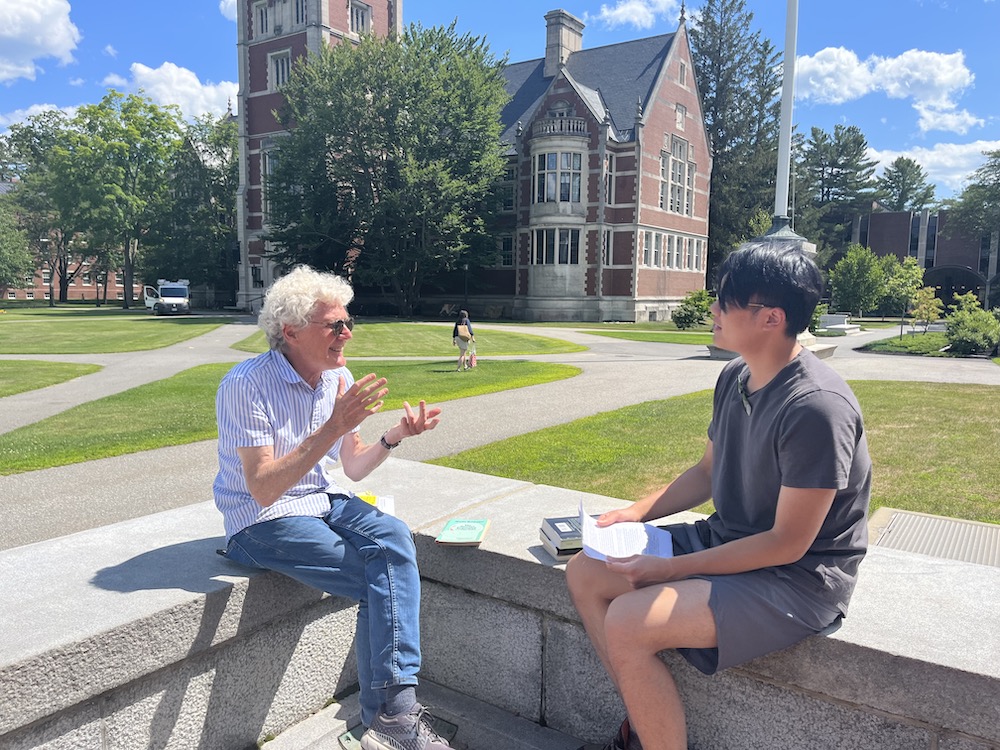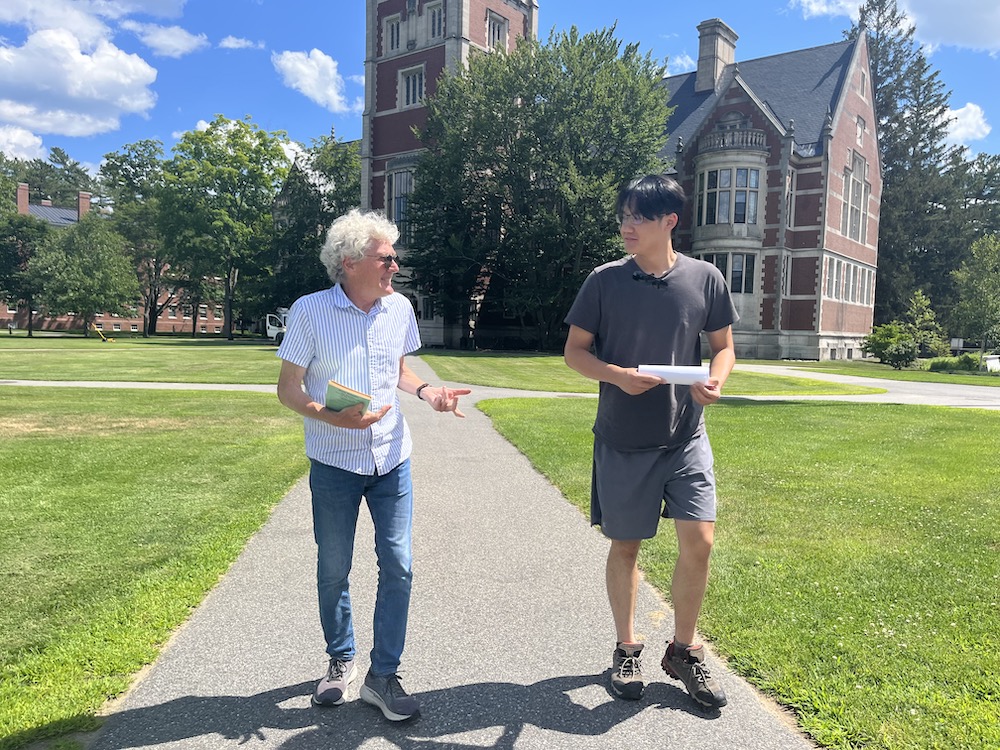Deconstructing Deconstruction

Nora Sullivan Horner ’24: What inspired you to work on this project?
Chengkai Gu: Almost two years ago, I watched an online series by Paul Fry from Yale University on literary theory. He gave an introduction on what Deconstruction is, what Structuralism is. I found that pretty appealing. And the year after, I took a class with Professor David Collings in the English Department called “Introduction to Literary Theory.” We had lots of discussions on Deconstruction. He walked me through the big ideas and some other related philosophical figures. And that made me feel that this is the type of work I want to do, at least for college. Later, I talked to Professor Franco and Professor Aaron Kitch from the English Department, and because they also read Jacques Derrida, Martin Heidegger, those figures, we decided to do a project like this over the summer.
Sullivan Horner: This project seems based more on cross-disciplinary mutual interests than major since Professor Franco is in Government and Chengkai gravitates towards English and Philosophy.
Paul Franco: Chengkai’s project embodies the interdisciplinary nature of his interests. In addition to literature, he’s interested in philosophy, specifically Continental Philosophy in the 20th century non-Anglo-American sphere. Bowdoin’s philosophy department focuses on the Anglo-American analytic tradition, which has forced Chengkai to fan out: intellectual history with Professor Dallas Dennery, literary theory with Professors Aaron Kitch and David Colligs, and political theory with me.
Sullivan Horner: Given that wide variety of professors and their interests, why did you two, specifically, end up working together?
Gu: The answer to that is pretty straightforward: Professor Franco reads Martin Heidegger, a philosopher and predecessor of Jacques Derrida. Derrida is the founder of Deconstruction, and I read both of them, so we paired up.
Franco: Friedrich Nietzsche figures into this as well. Along with Heidegger, he’s the big figure that lies behind Deconstruction and is someone I’m very interested in, too, so we had a natural affinity. I actually had a glaring gap in my own education regarding Derrida, so for me, what was so exciting about this project was that I could help Chengaki a little bit, but he was really going to be teaching me!

Sullivan Horner: What else is innovative and interesting about this project?
Franco: There’s a reason we call Chengkai “The Beast”—he’s in the library from dawn to dusk! For an undergraduate, this is an amazingly ambitious, heady, abstract topic to tackle. His twist is that he’s not simply concerned with understanding Deconstruction; he wants to perform an internal critique of it, to show it, too, may fall pretty to some of the very problems it points out. That’s his original contribution and I think it is a genuinely original one. For someone who’s just finished their sophomore year to be tackling this material is exciting, and I look forward to the next stage. I’m the traditionalist in this duo; I’m always pulling back to the classic questions that arise within philosophy. As a political theorist, I’m interested in the political and practical ramifications.That’s been a productive discussion for us because Chengkai tends to me more theoretical.
Sullivan Horner: You’ve said you feel you’re on the sidelines of Chengkai’s work because of his initiative and ethic, so how do you feel you’re guiding the project?
Franco: We always have assigned reading for our sessions so we can talk about that rather than Chengaki telling me about what he’s been doing. When we have a text between us, we have our own takes and that forms a back and forth. I’m going to be reading drafts of the paper so I’ll be able to comment there. Another thing to add is the key figures in the background of this movement. The authors involved with Deconstruction are principally Derrida and Foucault, but there are two figures that stand in the background, Nietzsche, on whom I’ve written and taught many seminars, and Heidegger. And I think, partly a little bit inspired by Chengkai, I’m going to offer a seminar on Heidegger next year, who’s an extremely difficult, obscure writer in his own right. This summer is partly the beginning of the build up to that project.